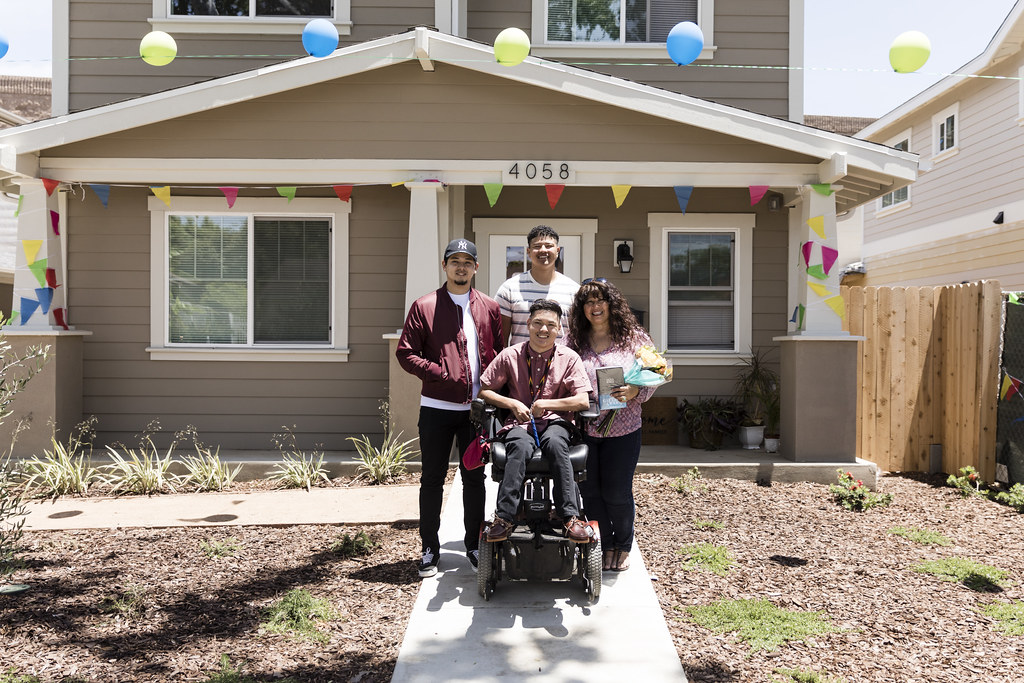Inexpensive Homeownership Options for First-Time Homebuyers
As the housing market continues to progress, new buyers face special obstacles in protecting budget friendly homeownership options. Numerous resources, consisting of entitlement program programs, low-down-payment mortgages, and targeted gives, have actually emerged to ease financial pressures. These initiatives not only facilitate homeownership but also foster community security and financial development. Nonetheless, navigating these choices can be complex, and understanding which pathways are most valuable needs cautious factor to consider. What approaches can possible homeowners use to maximize their chances in this landscape?
Federal Government Help Programs
Government support programs play an essential role in making homeownership obtainable for several people and households. These programs intend to ease the economic concern related to buying a home, specifically for first-time buyers. By supplying economic help, grants, and tax obligation rewards, federal government initiatives assist link the space in between rising housing costs and the buying power of prospective property owners.
Numerous programs are offered at the government, state, and local levels. For example, the Federal Housing Administration (FHA) provides insurance policy on fundings, enabling lending institutions to provide a lot more desirable terms, such as reduced deposits and reduced rate of interest. Additionally, state and regional federal governments often have their own initiatives, which might include down settlement support programs, buyer education courses, and desirable mortgage terms.
These programs are designed to deal with the unique obstacles faced by low- to moderate-income family members, consisting of limited cost savings and credit report. By fostering a setting where homeownership is a lot more easily accessible, entitlement program programs not just sustain individual desires however also add to neighborhood stability and financial development. Understanding and making use of these resources can significantly boost the potential customers of successful homeownership.
Low-Down-Payment Home Loans
For many ambitious property owners, low-down-payment home mortgages provide a sensible pathway to homeownership, especially in today's tough housing market. These home mortgage options normally require deposits varying from 3% to 5%, making it simpler for new buyers to go into the marketplace without the concern of conserving for a substantial deposit.
Numerous lenders supply low-down-payment programs, including standard financings backed by Fannie Mae and Freddie Mac, as well as government-backed alternatives like FHA loans. These mortgages are created to suit individuals with limited financial savings while still offering affordable rates of interest. Notably, they enable purchasers to keep more cash for other necessary expenditures, such as moving costs, home assessments, and possible renovations.
However, prospective property owners need to be conscious of the trade-offs related to low-down-payment home loans. A smaller down repayment might lead to greater monthly settlements and the requirement of exclusive home loan insurance policy (PMI), which shields lenders in instance of default. As a result, it is critical for novice buyers to perform comprehensive study and seek advice from with mortgage specialists, guaranteeing they select a low-down-payment option that straightens with their long-term economic objectives. Affordable Homeownership.
First-Time Homebuyer Grants
Numerous first-time buyers discover that grants can dramatically alleviate the economic concern of purchasing a home, complementing click to find out more low-down-payment mortgage alternatives. These gives, commonly supplied by state and non-profit companies or neighborhood federal governments, use monetary aid that does not need settlement, making them an attractive choice for those entering the real estate market.
Qualification for newbie buyer grants generally relies on income, credit reliability, and the acquisition rate of the home. Many programs are created to help reduced- to moderate-income families, guaranteeing that support reaches those who require it most. The application procedure frequently entails paperwork of economic condition, homebuyer education More Bonuses courses, and sometimes also a dedication to remain in the home for a certain period.
The quantity helpful differs widely, with some gives giving a number of thousand bucks to aid cover closing costs or down settlements. Researching readily available gives in your location is crucial, as programs often alter and might have specific needs. By leveraging these economic resources, new property buyers can make homeownership more available, ultimately accomplishing their desire for owning a home while mitigating the first economic stress.
Ingenious Area Initiatives
Innovative community campaigns are playing a vital role in expanding inexpensive homeownership options for citizens. These efforts frequently entail collective initiatives in between city governments, non-profit companies, and economic sector stakeholders to develop lasting real estate solutions tailored to community needs.
One significant method is the facility of neighborhood land depends on (CLTs), which enable residents to purchase homes while the land stays had by the trust fund. This model assists keep affordability over time and protects against speculative cost rises. Additionally, CLTs often give instructional resources and assistance solutions to encourage new homebuyers.
An additional effective campaign is the development of mixed-income housing jobs, which blend economical devices with market-rate homes. This technique cultivates comprehensive neighborhoods and lowers the stigma frequently connected with low-income real estate. In addition, neighborhood governments are increasingly supporting zoning reforms to promote the building of accessory residence units (ADUs), which can give extra rental revenue for property owners while enhancing real estate accessibility.

Tips for Budgeting and Saving

Following, establish a devoted interest-bearing account particularly for your future home purchase. Aim to conserve a portion of your revenue regularly, preferably 20% or even more, to develop a considerable down payment. Utilize automation tools, such as straight deposit or automatic transfers, to make saving easier and a lot more constant.
In addition, think about embracing the 50/30/20 rule: assign 50% of your earnings to requirements, 30% to wants, and 20% to financial savings and debt repayment - Affordable Homeownership. This approach advertises well balanced monetary wellness

Conclusion
In summary, budget friendly homeownership choices for new property buyers encompass different sources such as entitlement program programs, low-down-payment mortgages, and grants. These efforts not only promote access right into the housing market however also promote neighborhood security and economic development. By leveraging these economic tools, people can browse the complexities of homeownership, ultimately contributing to a much more equitable real estate landscape. Proceeded support and awareness of these programs are important for boosting access to homeownership possibilities.
As the real estate market continues to progress, novice homebuyers face distinct challenges in safeguarding economical homeownership choices. By promoting an atmosphere where homeownership is much more accessible, federal government support programs not just sustain private goals but also add to neighborhood stability and financial development. By leveraging these monetary sources, novice homebuyers can make homeownership more obtainable, eventually accomplishing their dream of possessing a home while alleviating the initial economic strain.
In summary, inexpensive homeownership options for novice property buyers encompass numerous resources such as government aid programs, low-down-payment home mortgages, and gives. By leveraging these economic devices, people can browse the intricacies of homeownership, eventually adding to a much more equitable real estate landscape.